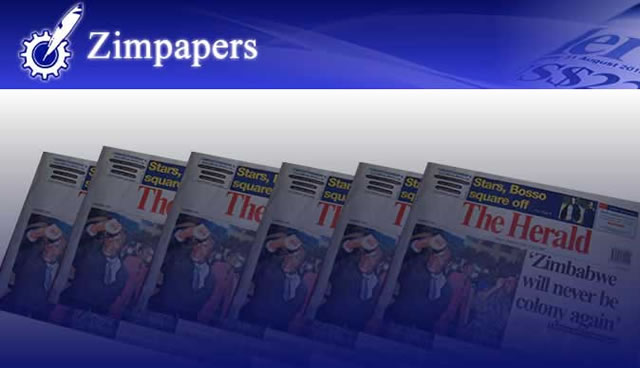Editorial Comment: Willowvale Mazda Motor Industries needs support

 WILLOWVALE Mazda Motor Industries has been in the intensive care unit for too long. It now requires urgent resuscitation if it is to function again. The firm, owned by Government and Itochu of Japan, has churned out one sad story after another over the past few years as it succumbs to increasing competition from second hand car imports and its failure to recapitalise. There appears to be no immediate solution to its challenges.
WILLOWVALE Mazda Motor Industries has been in the intensive care unit for too long. It now requires urgent resuscitation if it is to function again. The firm, owned by Government and Itochu of Japan, has churned out one sad story after another over the past few years as it succumbs to increasing competition from second hand car imports and its failure to recapitalise. There appears to be no immediate solution to its challenges.
Something needs to be done with haste.
The company’s management has lamented, as its greatest undoing, failure to get first preference status from Government and its arms when purchasing vehicles.
These institutions continue to pour millions of dollars annually into vehicle imports for ministers and their deputies, parliamentarians and other public officials.
These funds could certainly help recapitalise WMMI, save and generate jobs and contribute to the Gross Domestic Product if deliberate efforts to support the assembly plant are applied.
It is unfortunate that Government, to some extent, does not appear convinced that it could procure vehicles locally and inject life into the firm, which is a shadow of its former self.
The Presidential decree, which compels all Government departments to purchase vehicles from the local market, has not been adhered to, with CMED allegedly importing cars for these departments in flagrant disregard of the directive.
The fact that the generality of Zimbabweans have found solace in the second-hand car imports provides another headache for WMMI. It has failed to compete with the cheap imports, understandably so given high local production costs, while the bulk of the local market also feels empowered by the advent of cheap imports that have enabled the average Zimbabwean to own a car or two.
The fact that South African suppliers enjoy a 46 percent rebate on vehicle exports has compounded the situation. It has meant that the SA firms sell cars in this market at WMMI’s production costs. The playing field is tilted in favour of the former.
We appeal to the powers that be to come up with procurement schemes that ensure that vehicles for Government departments are purchased locally, with the bulk of the orders allocated to WMMI. The State Procurement Board also needs to be sensitive to the company’s plight.
WMMI assembles trucks, sedans and SUVs which are decent enough for ministers and their deputies to drive. Parliamentarians would certainly find comfort in their off-road line-up that includes the BT50s which were given a facelift recently.
This could be a deliberate strategy to revive the firm. A national cause is at stake here.
In countries such as Malaysia and the rest of the Asian tigers, rules and regulations were put in place to buy local when these economies went through a rough patch. Results of such policies are there for everyone to see.
We thus encourage Government to do the same.
In such a scenario, we expect Government, as the major shareholder, to weave through this catch 22 situation and come up with initiatives to bail out WMMI.
Government departments must be compelled to observe the Presidential Order of 2002 and buy vehicles locally.
Furthermore, a provision in the Indigenisation and Economic Empowerment Act that compels Government entities to procure a minimum 50 percent of their goods and services from local firms should be strictly adhered to and help save hundreds of jobs at stake.
WMMI chief executive Engineer Dawson Mareya has periodically raised alarm that his house is on fire. We expect initiatives to rescue him and his lot at the assembly plant.
However, on its part, WMMI needs to come up with purchasing facilities that will attract companies, non-governmental organisations and individuals to buy from it. These could be in the form of affordable credit facilities or lay-bye schemes.
Banks can also come into the fold to help craft economically viable options that can help restore the assembly plant’s viability.
This is no longer time for mourning but that the firm needs to get into an aggressive marketing mode so it can win back part of its market share. WMMI management needs to think outside the box and pursue ways that can breathe life into the firm, once a shining example of Zimbabwe’s industrial wealth.






Comments